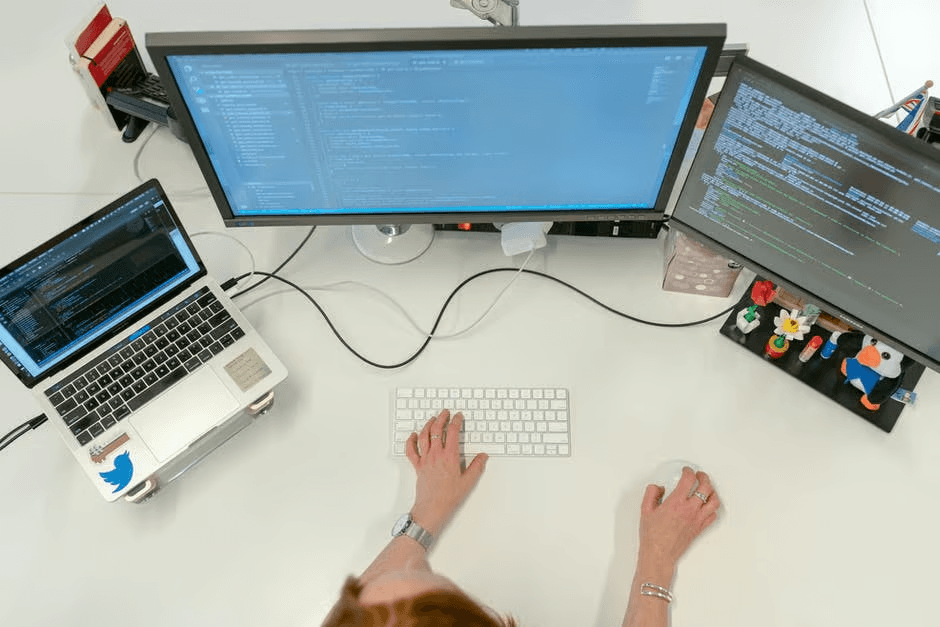
As the world becomes increasingly digital, the concept of remote work has become more prevalent than ever. With the advancement of technology, it's now possible for employees to work from anywhere, at any time, as long as they have a stable internet connection. However, this newfound freedom can also bring its own set of challenges. In this article, we'll explore the art of tone remote work, providing you with tips and strategies to stay productive and connected while working from the comfort of your own home.
1. Setting Up Your Home Office
Before you start working remotely, it's essential to set up a dedicated home office. This will help you create a clear distinction between your work and personal life. Choose a quiet and comfortable space that is free from distractions. Invest in a good chair, desk, and lighting to ensure your physical and mental well-being. Make sure your workspace is well-organized and clutter-free, as this will help you stay focused and productive.
2. Creating a Schedule
When working remotely, it's easy to fall into the trap of procrastination. To avoid this, create a schedule that outlines your work hours, breaks, and tasks. Set specific goals for each day and prioritize your tasks accordingly. Use time-tracking tools to monitor your progress and stay on track. Remember to take regular breaks to recharge and avoid burnout.
3. Staying Connected with Your Team
One of the biggest challenges of remote work is staying connected with your team. Regular communication is key to maintaining a sense of camaraderie and collaboration. Use video conferencing tools to hold virtual meetings, and make sure to check in with your colleagues regularly. Share your progress and ask for feedback to ensure you're on the same page.
4. Managing Your Time Effectively
When working remotely, it's easy to get sidetracked by household chores or personal errands. To avoid this, prioritize your tasks and focus on one thing at a time. Use the Pomodoro technique, which involves working in focused 25-minute increments, followed by a 5-minute break. This will help you stay focused and avoid burnout.
5. Staying Motivated
Working remotely can be isolating, which can lead to a lack of motivation. To combat this, set small goals for yourself and celebrate your achievements. Use positive self-talk to boost your confidence and remind yourself of your strengths. Take breaks to do something you enjoy, such as reading a book or taking a walk.
6. Maintaining a Healthy Work-Life Balance
When working remotely, it's easy to blur the lines between your work and personal life. To maintain a healthy work-life balance, set clear boundaries and prioritize your personal time. Make time for self-care, exercise, and socializing to avoid burnout.
7. Overcoming Distractions
When working remotely, distractions are inevitable. To overcome these distractions, use noise-cancelling headphones or play calming music to block out background noise. Remove any distractions from your workspace, such as turning off your phone or closing unnecessary tabs on your computer.
8. Staying Organized
Staying organized is crucial when working remotely. Use project management tools to keep track of your tasks and deadlines. Create a to-do list and prioritize your tasks accordingly. Use a calendar to schedule your work and personal appointments.
9. Taking Care of Your Mental Health
Working remotely can be isolating, which can take a toll on your mental health. To combat this, make time for socializing and connect with friends and family regularly. Practice mindfulness and meditation to reduce stress and anxiety. Take breaks to do something you enjoy, such as reading a book or taking a walk.
10. Staying Up-to-Date with Industry Trends
When working remotely, it's easy to fall behind on industry trends. To stay up-to-date, attend virtual conferences and webinars, and participate in online forums and discussions. Read industry publications and blogs to stay informed and network with other professionals.
Conclusion
Working remotely requires discipline, organization, and self-motivation. By following these tips and strategies, you can stay productive and connected while working from the comfort of your own home. Remember to prioritize your mental and physical health, and make time for self-care and socializing. With the right mindset and tools, remote work can be a rewarding and fulfilling experience.